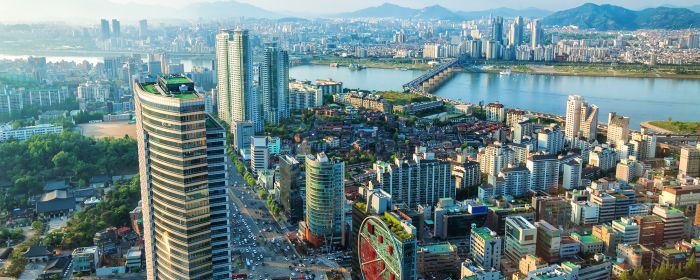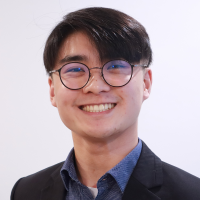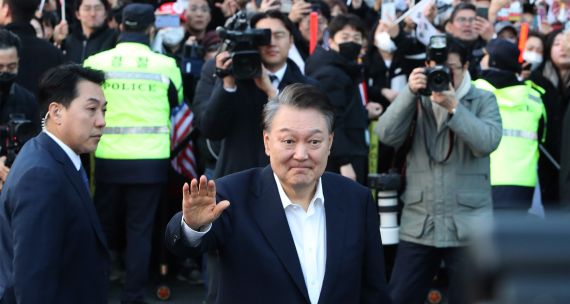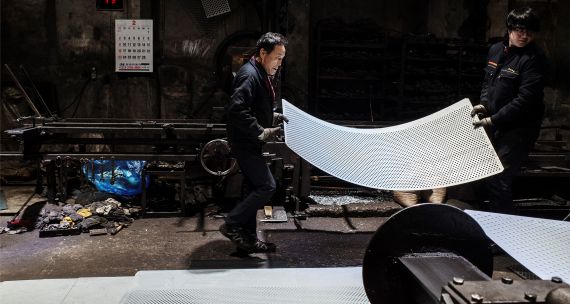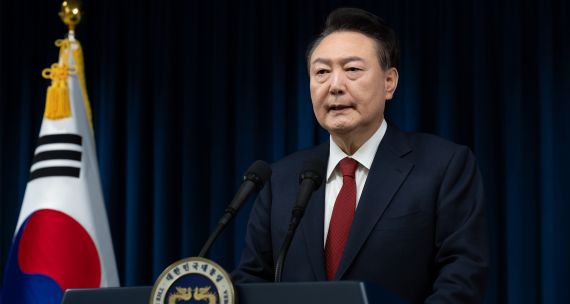This Dispatch is the first in a five-part series by our South Korea Election Watch, a team of young analysts tracking key developments and issues in South Korea’s March 9 presidential election. The series spotlights a segment of the population that most observers believe will play a decisive role in the outcome of the election: voters in their twenties and thirties. It looks at how they view their options in terms of the candidates and main political parties; how they might be impacted by the next administration’s economic policies; how the candidates are trying (or not) to appeal simultaneously to both young feminists and ‘anti-feminists’; their generation’s diverging views on inter-Korean relations; and how the ‘China factor’ has become more complex for them than for their parents and grandparents.
The March 9, 2022, South Korean presidential elections are the first since the impromptu race triggered in 2017 by the impeachment and ouster of former president Park Geun-hye for corruption in late 2016. After that tumultuous episode, it might have been expected that South Koreans would have reverted to ‘politics as usual’ for the current election cycle – that is, an election driven by regionalism and dominated by veteran establishment candidates from the political class.
While there are some continuities, other features of the upcoming elections mark a noteworthy departure from the past. In this dispatch, we take a broad overview of several patterns in the South Korean political system – regionalism, the nature of Korean party politics, and candidate choice – to highlight points of continuity, and discontinuity, and how they might shape the outcome of this year’s elections.
Politics as usual? Patterns in regional support
One point of continuity can be found in patterns of regional support between the two parties, the liberal Democratic Party of Korea (DPK) and the conservative People Power Party (PPP). Historically, the southeast has leaned conservative, while the southwest has leaned liberal. Scholars have proposed several explanations for this regional divide, ranging from historical confrontations between the kingdoms of Baekje and Silla in the 7th century and regional discrimination under the Goryeo (918-1392) and Joseon (1392-1910) dynasties to the economic disparities or political favouritism under the military dictatorships of the 1960s-1980s.
Regardless of the origins, public support for presidential candidates on the right and left of the ideological spectrum consistently matched these regional divisions since South Korea’s first free elections in 1987 and have been observed in National Assembly seat distributions as recently as the 2020 parliamentary elections. Recent reporting on provincial support for the two candidates also reflects continuity in this trend: Realmeter polling as of this month shows Yoon Seok-yeol, who represents the conservative PPP, holding double-digit leads (in some cases by more than 20 per cent) in the southeastern regions of the country (Busan, Ulsan, Daegu, and North and South Gyeonggi provinces).
Meanwhile, Lee Jae-myung of the left-leaning DPK holds commanding leads in the southwest (Gwangju, North and South Jeolla provinces, and Jeju). One feature to watch is candidate favourability in Seoul: In four of the last five elections, the most popular candidate in the national capital region – home to almost one-fifth of all South Korean citizens – has gone on to win the presidency. Here, conservative Yoon has enjoyed a widening lead since the beginning of 2022.
Age-old problems, brand new environment: Party volatility and loyalty
The second point of continuity is the effect of South Korea’s volatile party politics system. At face value, South Korea’s political party system resembles most other first-past-the-post systems – i.e. those in which elections are won by attaining a simple majority – such as those in the U.S. and Canada. As such, electoral politics in South Korea tend to be fought between two leading parties, in this case, one liberal and one conservative.
But unlike these other countries, South Korean politics have long been characterized by deep institutional instability within the parties themselves. Scholars like Dr. Joseph Wong at the University of Toronto have attributed this institutional instability to the nature of South Korea’s democratization in the 1980s, when the nature of grassroots mobilization and the relatively benign economic conditions of the time blurred the socio-economic and political cleavages around which distinct oppositional parties would otherwise have coalesced. As a result, while ideological divisions are generally present on the surface, the parties are subject to regular factionalism and infighting, name changes, and even realignments along the ideological spectrum, often in tandem with changes in leadership.
The tumult within the conservative movement since the 2016 scandal offers a case in point, with the current PPP emerging from at least three episodes of rebranding in the past five years and having experienced several splits and merges with other parties – including across ideological lines. By comparison, such party rebranding and mass floor-crossing are virtually unheard of in the North American political context: In Canada, the Conservative Party has undergone only two re-brandings in its 154 years of existence, while the Liberal Party has seen none since Confederation in 1867. In the U.S., neither the Democratic nor Republican parties have undergone major reconstitutions since their founding in 1828 and 1854, respectively.
This institutional instability has posed a particular problem in recent years – namely, growing dissatisfaction with the political system and a notable decline in party loyalty. A 2021 survey by the Pew Research Center found that 84 per cent of South Koreans say major change or complete reform is needed in South Korean democracy, with only 53 per cent satisfied with how democracy works in the country. In Canada, by contrast, only 47 per cent see a need for major political change, with 66 per cent saying they are satisfied with the system.
In part, this decline in satisfaction with the political system in South Korea may reflect its political parties’ failures to adequately address citizens’ grievances, leading to disenchantment by an otherwise robust civil society, as argued by Dr. Jennifer Oh of Ewha University. Consequently, there has been a generational decline in party loyalty, with younger generations (especially those in their twenties and thirties) more likely to identify as politically neutral. Analysts point out this is not necessarily indicative of ideological neutrality but rather neutrality of party identity, with individuals more willing to swap their vote to other parties as election campaigns progress. According to a survey by Realmeter Korea, no South Korean political party holds more than a 39 per cent approval rating as of January 2022. Taken together, the confluence of party instability, unpopularity, and a decrease in party loyalty creates an extremely volatile voting public, amplifying the impact of individual shocks to popular opinion on any given candidate or party that emerges on the campaign trail.
Kings from outside the castle: Candidate choice and the party establishment
Perhaps the most stunning discontinuity in the upcoming elections is the choice of candidates. Elections at the presidential level in South Korea have often been contests between seasoned politicians firmly within the national political establishment. Of the major parties’ presidential candidates over the past four elections, all previously served at least four years in the National Assembly, with many also serving in national party leadership positions or other levels of government.
The election on March 9, however, is noteworthy in that it is not an election between the standard-bearers of the conservative and liberal parties. On both sides, non-establishment candidates – neither of whom possess experience in the National Assembly – ultimately clinched the presidential nominations over their more mainstream competitors by fairly respectable margins: Former Prosecutor General Yoon Seok-yeol won the PPP nomination over veteran lawmaker Hong Joon-pyo by about six per cent; and, Lee Jae-myung won the DPK nomination by around 11 per cent over former Prime Minister Lee Nak-yon.
In some respects, each party’s candidate choice may have links to the previously mentioned decline in party loyalty and an increase in potential swing voters. For the DPK, Lee Jae-myung serves as an outsider to the liberal mainstream who, despite wielding political experience as governor of Gyeonggi Province, has never served in the National Assembly. In the face of declining approval ratings for the incumbent President Moon, Lee’s outsider status may have helped the party distance itself from Moon’s legacy, which has been tarnished by a perceived lack of progress on inter-Korean relations, economic woes, and pessimism over the prolonged pandemic. In the conservative camp, Yoon has held appeal among the party membership for his role in the Cho Kuk scandal where his investigations into the former minister of justice positioned him both as someone able to stand up to the ruling party, but also potentially win over swing voters given his more moderate political background.
Whether the choice of candidates will serve the interests of either party remains to be seen: Both candidates have fallen victim to scandal after scandal on the campaign trail. Yoon’s credibility has come under question over allegations against his wife of falsified credentials, prompting him to issue a public apology on her behalf. However, these critiques-by-proxy have continued: Yoon’s wife came further under fire for her comments on sexual violence and pre-emptive threats to jail reporters critical of her husband.
Lee has faced his own share of unwanted public attention over his family drama – namely his son’s gambling habits and his wife’s use of public servants and corporate credit cards during his governorship – as well as over his role in a land development scandal and the mysterious deaths of individuals related to investigations into the payment of Lee’s legal fees. Again, given the volatility of public opinion in this election, it will be interesting to see which among the two candidates walks away the least blemished in the voters’ eyes – or whether increasingly disaffected voters will be attracted to one of the other long-shot names on the ballot.
The (not so) long march to March 9
As the election draws nearer, these three factors – regionalism, party instability, and the selection of non-mainstream candidates – are likely to leave indelible footprints on the campaign trail.
On the regional front, for now at least, things appear to be going as expected, with established pockets of support still coming from either party’s traditional regional strongholds.
In terms of party stability, election observers would do well to look for further’ cracks in the castle’ resulting from party infighting and how this might impact confidence in either of the main parties. For Lee, this involves an awkward balancing act of distancing himself from the Moon administration while maintaining a united front to show that his party deserves another five years in office – a challenge he has already had to face given attempts within the party to stall his primary campaign and overturn the results of his nomination. Likewise, Yoon experienced a rift with the PPP’s party leader in early December, with factionalism continuing to test the conservative movement.
As for these two non-establishment candidates, it will be interesting to see how successful they are in convincing voters of their suitability for the presidency. One perennial question in today’s electoral politics in South Korea is whether populist approaches will ultimately resonate with voters. Allegations of populist tendencies have already emerged against the Lee camp over his proposals for universal basic income and – of all things – funding of hair regrowth treatments. Lee has even compared himself to American Senator Bernie Sanders, though he later walked back the claim.
Aside from the populism question, the scandals endured by both Yoon and Lee continue to leave the door open to unexpected shifts in public opinion and strategic politicking on the part of third-party candidates, most recently by People Party candidate Ahn Cheol-soo, who proposed uniting with the PPP to defeat Lee Jae-myung, although such proposals have taken on a very on-again, off-again dynamic. (The People Party is distinct from the PPP, but partly shares some conservative inclinations.) The latest developments on this front have seen Ahn Cheol-soo drop the proposed merger, and while the PPP did not categorically reject a potential last-minute alliance, this has opened the door to outreach by the DPK.
With just days until the polls open, the outcome of the election remains very uncertain in what has been to date a tumultuous and highly unpredictable campaign.
About the South Korea Election Watch (SKEW):
The SKEW is part of APF Canada’s election watch series, first launched in 2016, of graduate and undergraduate students and young professionals working with APF Canada to monitor and analyze key national-level elections in the Asia Pacific, including their implications and the underlying social, economic, and political issues.
Other Dispatches in this Election Watch Series:
Will the Honeymoon Period for South Korea’s President-Elect Be Cut Short? – Daniel Jacinto and Chloe Kang
Places, Parties, and Politicians: A Primer on South Korea’s 2022 Presidential Election – Daniel Jacinto
South Korea’s Presidential Candidates Seek Solutions to Persistent Economic Problems – Kevin Seo
South Korea’s Presidential Contenders Court Young, Male Anti-Feminists – Lynn Lee
South Korea’s Presidential Candidates Formulate North Korea Policies Amid Shifting Public Opinion – Chloe Kang
The ‘China Factor’ Looms Large Over South Korean Presidential Candidates’ Foreign Policy Choices – Lina Park
